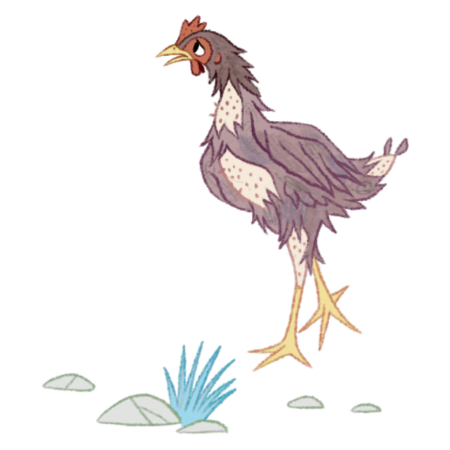

Learning
Juno is thrilled to be your guide while we learn about farming and agriculture and how we can work together to reduce the cruelty to animals in the production of meat, milk and eggs. Over the past 50 years the demand for meat has more than tripled and this is a big problem for the planet because of the amount of water and energy used to produce and distribute meat and, the very high levels of greenhouse gas emissions. If people changed their edible protein intake from meat to a non-animal source it would help. If everyone in the UK were to switch one beef or lamb-based meal a week to a plant based option, not only would this be healthier for them but it would result in a an 8% reduction in domestic emissions (The Ecologist, 2019).of
Water used to produce one kilogram of meat from live stock
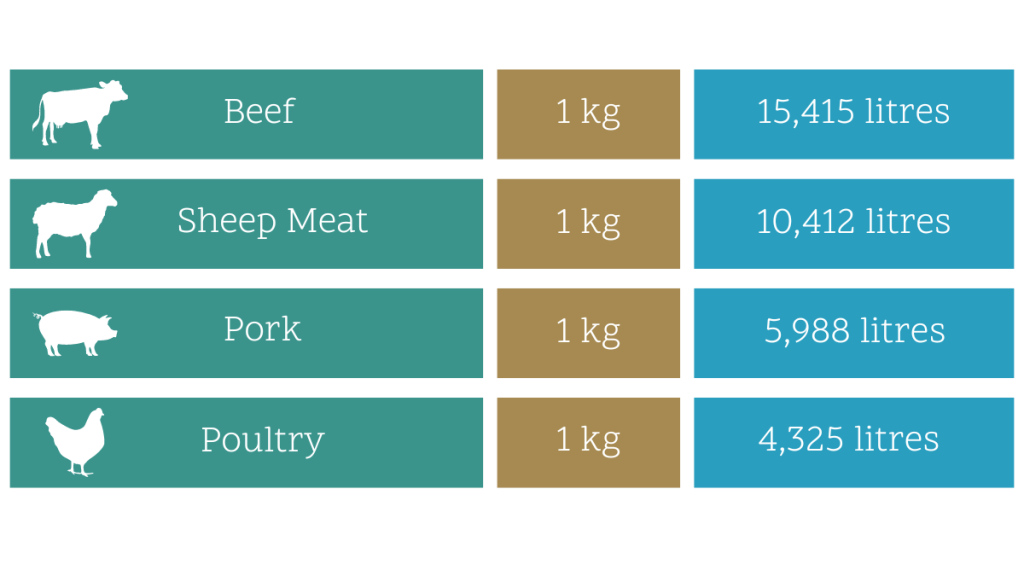
Source: Institute of Mechanical Engineers
Comparison use of primary energy input of European conventionally produced 1000kg edible meat as a percent of the impacts of the product with the highest impact of each category
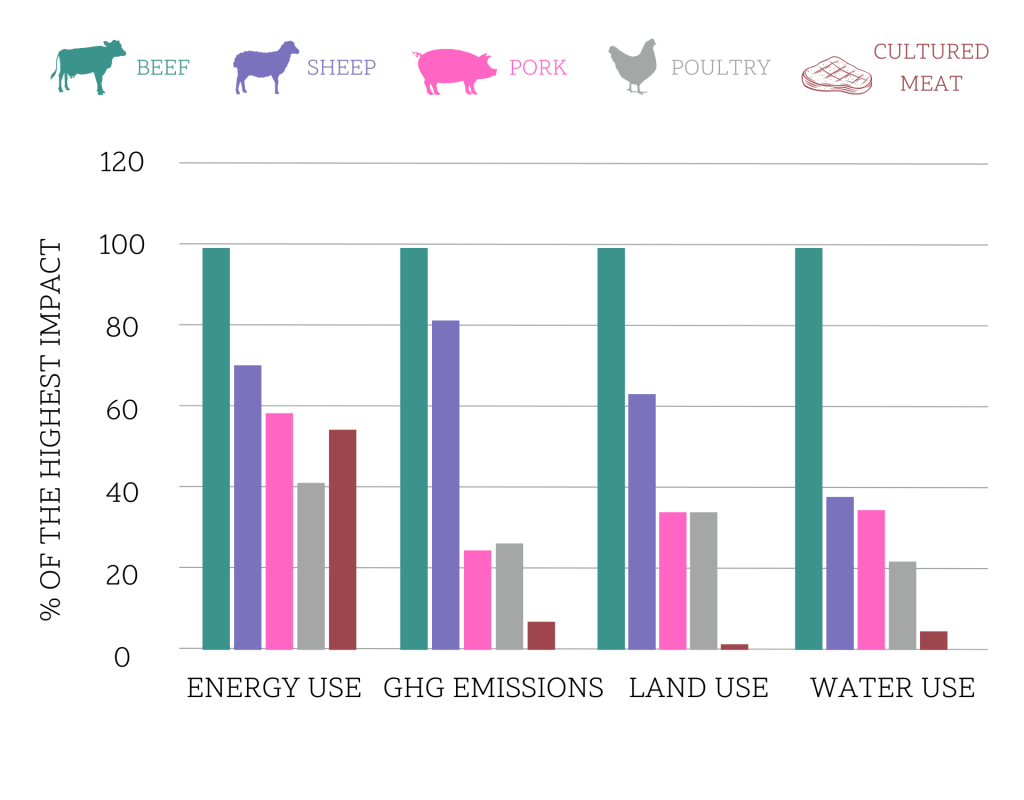
Source: Graph reproduced from Tannins and Mattes, ‘Environmental impact of cultured meat production’ (2011). 45:14 Environmental Science & Technology, courtesy of the American Chemical Society
Global Land Use for Food Production
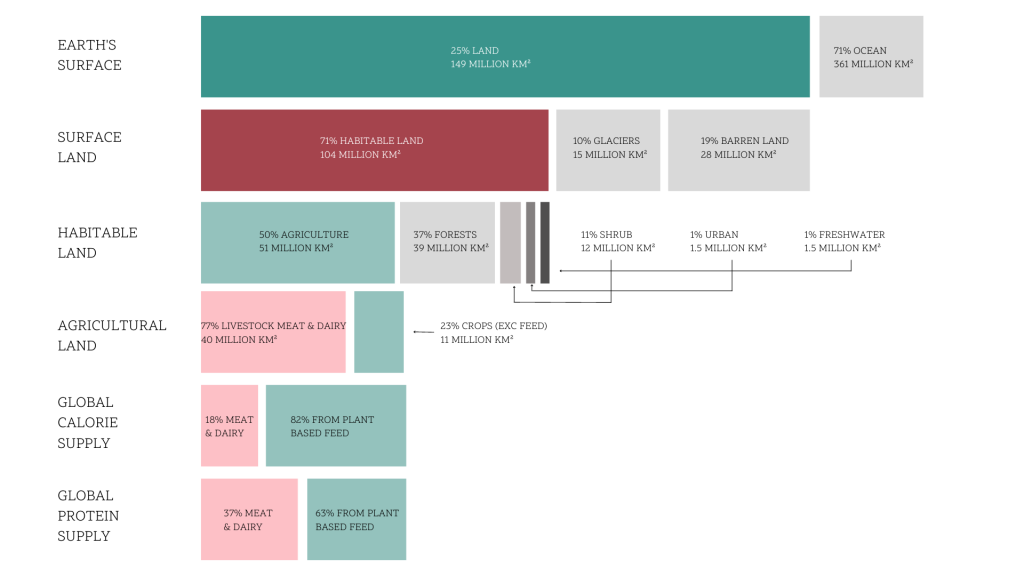
Source: Graph reproduced from Richie and Rosset, ‘Land Use’ (2013) published online at Our World in Data, using data from the United Nations Food & Agriculture Organisation
Pigs slaughtered for food
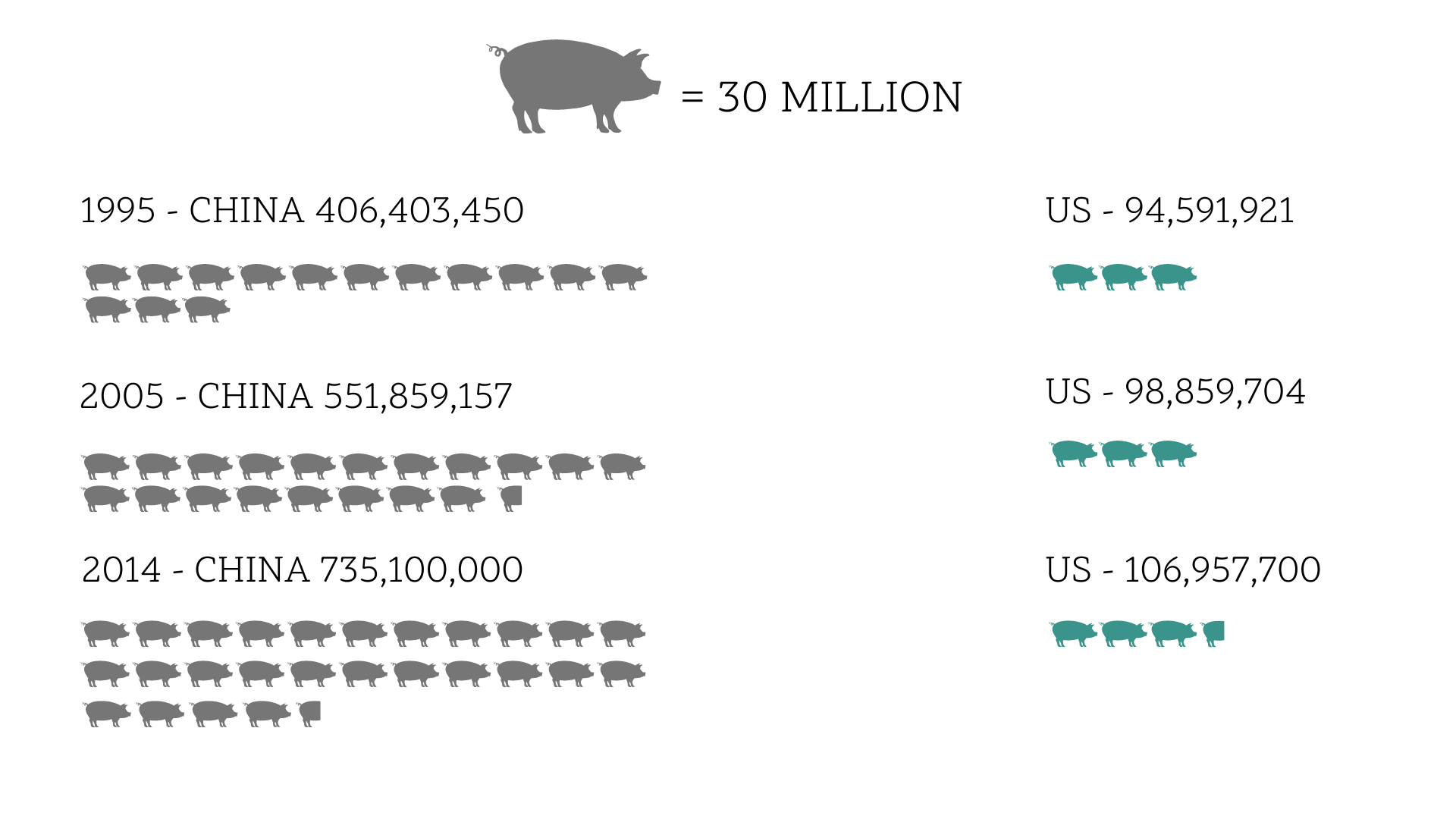
Data from FAO, USDA, Reuters and BBC
Size Comparison of Eight-Week-Old Commercial Broiler Chickens over time
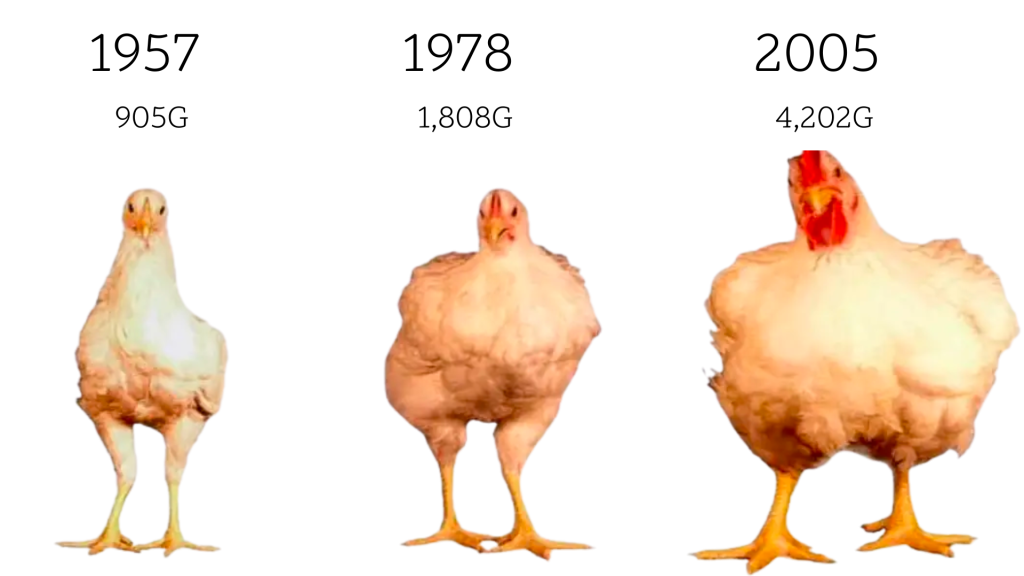
Source: Illustration originally appeared in MJ Zuidoff, et al, ‘Growth, efficiency and yield of commercial broilers from 1957, 1978, and 2005’ and is reproduced courtesy of Elsevier
A look at
Cellular Agriculture
We know that Juno doesn’t like to see animals suffering, which is why she has brought so many home to what her humans call “Juno’s Ark”, and now, for the first time in history, lots of food and stuff can be made which are identical to food and materials from animals – but without the animals being hurt!
“cellular agriculture” is a fancy term for making meat, fish, as well as other materials such as leather without the need to kill healthy animals. Watch this video to help you understand the term.
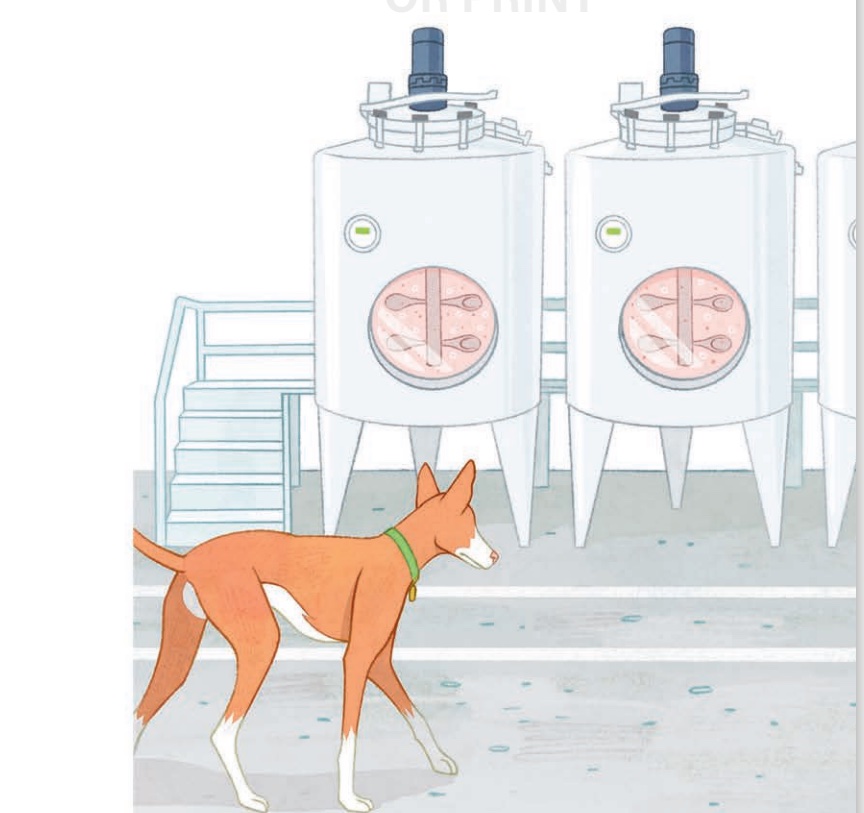
Cellular agriculture is a new way of production of agricultural products from cell cultures using a combination of methods. Cellular agriculture is healthier for humans, healthier for the planet and enables ethical treatment of animals. Imagine a world where animals are no longer a food source.